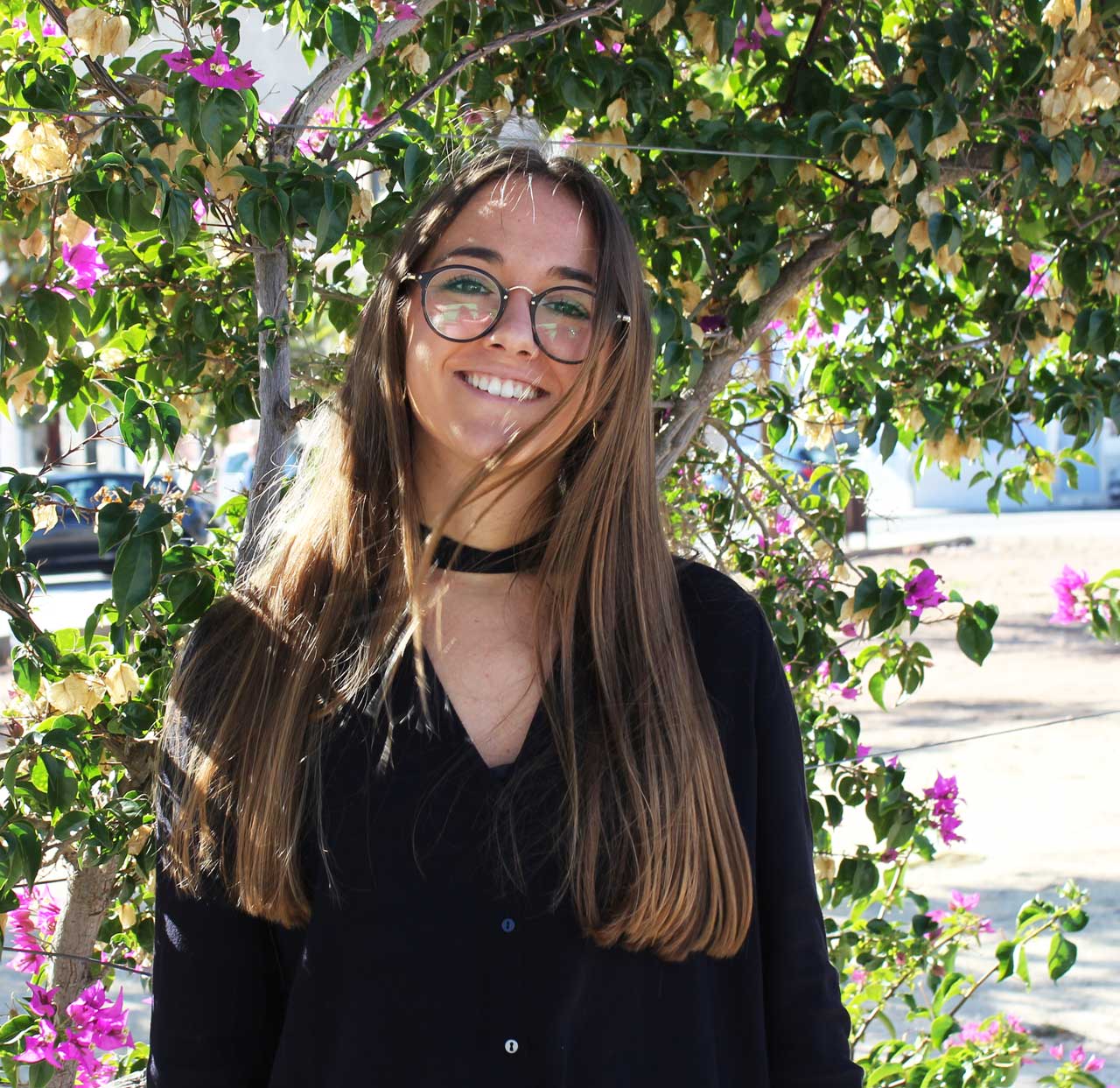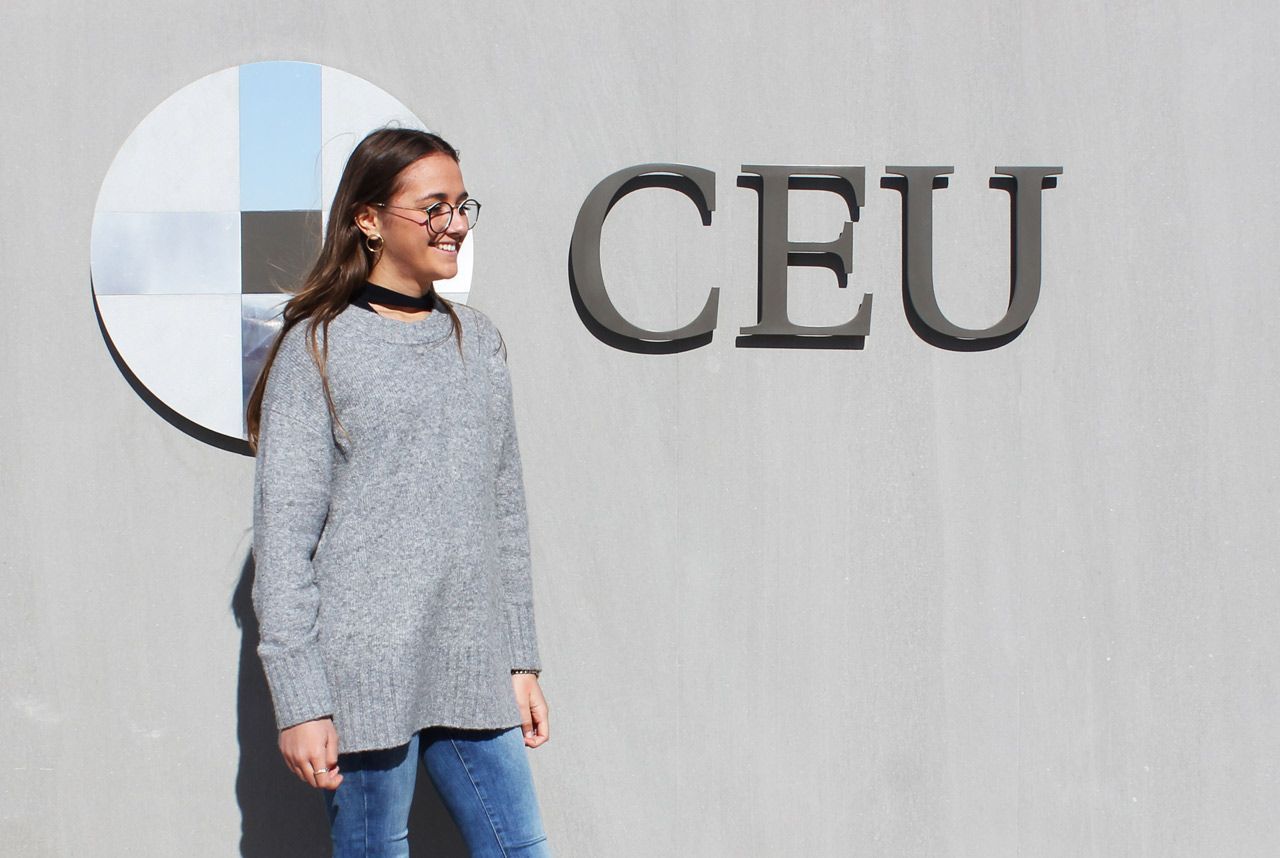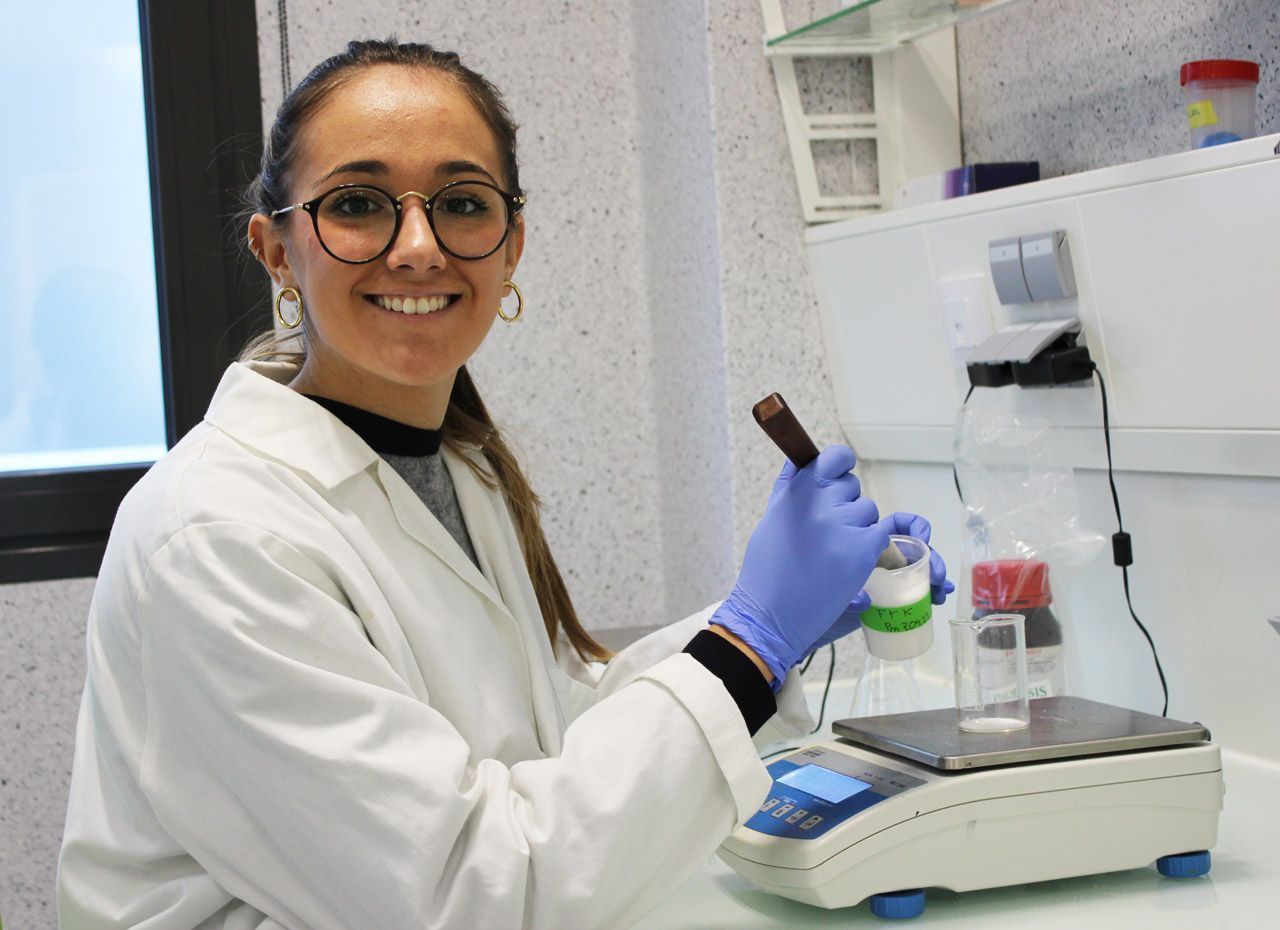We met María Zahonero one morning at the Faculty Health Sciences, where she is in her fourth year of her Bachelor’s Degree in Pharmacy programme. We soon found that she has three characteristic features: an irrepressible smile, contagious enthusiasm and a huge handbag (where she carries her laptop, several textbooks, her lunch, and her uniform, amongst other things). It’s good evidence of her dedication, as she’s fully prepared for hours of lectures, lab work, library study and practical training.
 María, why did you decide to study Pharmacy?
María, why did you decide to study Pharmacy?
Before choosing this degree, I looked into what a pharmacist can do apart from just working in a chemist’s, and I was really excited about all the research and the work that goes into discovering new medicines to treat previously incurable diseases. I think this is a great way to take care of other people and to improve the quality of life of those who are suffering.
There’s always a lot of hustle and bustle in the corridors of the Faculty of Health Sciences.
What’s day-to-day life like for a Pharmacy student?
We have lectures in the morning and then laboratory practicals after lunch. So, it can be quite hard because you’re here all day. You have to be prepared to make sacrifices, but I’m happy to do it, so it’s no burden really.
I was really excited about all the research and the work that goes into discovering new medicines to treat previously incurable diseases
What’s the best thing about life at the University for you?
For me, it’s just being able to come to the Faculty, to study what I want, to be with my friends and classmates and to speak to the lecturers, who are always giving us advice and telling us about their experiences. That’s great because we can use that and build on that in our lives. There’s a great relationship between the lecturers and the students.
 Is there a lecturer who has impressed you in particular?
Is there a lecturer who has impressed you in particular?
Yes, Teresa Pérez, the lecturer in microbiology. That’s also my favourite course! She’s the reason that I want to devote myself to microbiology when I graduate. I love the way Teresa explains things and gets across everything she knows to the students. She’s really warm and down-to-earth. In fact, I think that not only is she educating us in the area she specializes in, but she’s also passing on her values to us too, and I think that’s very important. For me she’s a real role model, something to aim for in the future.
Microbiology sounds complicated to those who aren’t familiar with it.
Well, it is a bit. If you were explaining it to a child, you’d tell them that there are these tiny bugs that can give us many illnesses and that what we’re trying to do is to find answers to the problems they cause. Some of these illnesses are incurable and there are others which are resistant to antibiotics, for example. I think it’s fascinating (laughs)!
Your passion for it really shines through!
It comes from that warmth with which Teresa Pérez explains everything to us and her way of communicating – it just draws you in. From the very beginning she helps you to understand the different processes and then you start to become interested in why each thing happens. She’s “the boss” of the Small World Initiative, in which I also take part. Both university and pre-university students are involved and we want to raise their awareness of the fact that using antibiotics incorrectly will create resistant strains of bacteria. We expect more people to die due to antibiotic-resistant bacteria in 2050 than cancer. That’s why it’s so important to pay attention to the instructions doctors and pharmacists give. For example, many people think flu can be treated with antibiotics, but this isn’t true. Or sometimes we follow the instructions we’re given, but as soon as we feel better we think we don’t need to take the antibiotics any more.
 What have you learnt by taking part in the Small World Initiative?
What have you learnt by taking part in the Small World Initiative?
That knowing how to work as part of a team is very important. I’ve also learnt how to motivate the pre-university students we’ve come into contact with and I also know a lot more about antibiotics, obviously. This year we’ve expanded the groups involved in the project because more people wanted to take part.
I love the way Teresa explains things and gets across everything she knows to the students. She’s really warm and down-to-earth
What do you think about the campus’s international atmosphere? Do you notice this from day to day?
Absolutely. There are people of several nationalities in my lectures. Some of my friends are from France, Marrakesh, and Casablanca. Before I met them, I didn’t know anything about people’s lives in those places, so it’s a really enriching experience. It’s also an opportunity to practise my French!
Let’s take a trip back in time. What would you say to your eighteen-year-old self who was about to start university?
I was so nervous back then! Well, I would tell her not to worry so much. That everything would work out by believing in herself.
Where do you see yourself in a few years?
That’s quite a difficult question! I still have to finish my fourth and fifth years. I’m not sure whether afterwards I’ll study for the civil service exams or maybe do postgraduate study in microbiology. Right now, I’m not ruling anything out.
If you had to choose a single photo that could represent your time at the University, what would it be of?
A photo of the practical training sessions for microbiology, because that’s what I’ve most enjoyed during my time here. Or maybe in the laboratory, doing experiments.
 Your wish is granted, María. We hope it’ll help you to always remember the enthusiasm you show every day here at the University! Keep doing things the same way, whichever path you choose.
Your wish is granted, María. We hope it’ll help you to always remember the enthusiasm you show every day here at the University! Keep doing things the same way, whichever path you choose.








